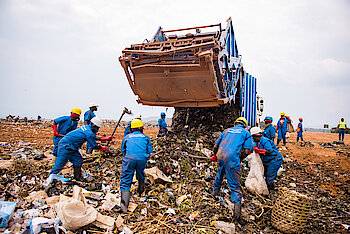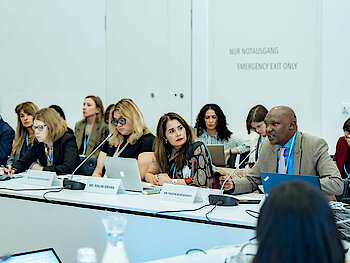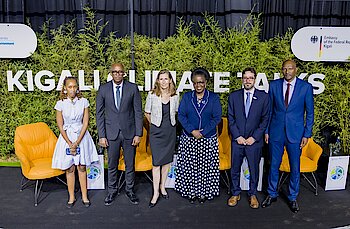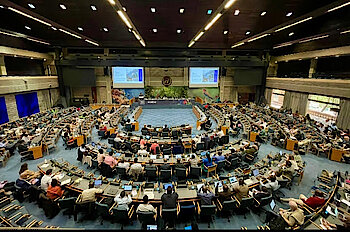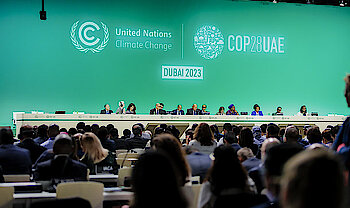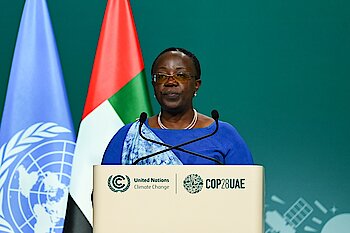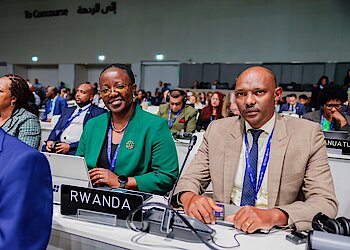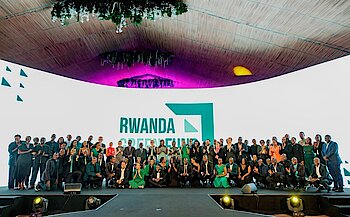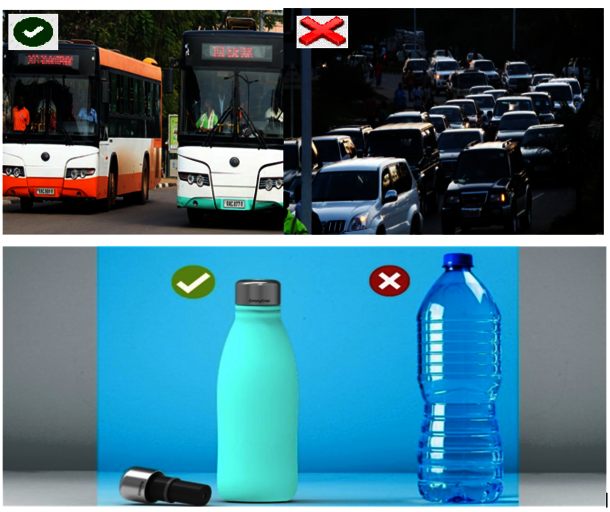
Be self-accountable to tackle Climate Change and save environment
Climate change has already begun to impact our planet in more ways than we can think. Temperatures continue to rise throughout the planet and we are experiencing changes in precipitation patterns as we have never seen before. The main cause of these catastrophic effects on our planet is pollution.
We need to carry out personal assessment and see whether we live in a climate-friendly way in material we use at homes, the package of the food or other items we buy from supermarkets. Let’s be self-responsible, because there are always things that we can do on our own to fight against climate change.
Saving the environment starts with us and it is our responsibility to act against these terrible changes to preserve the planet for future generations. Below some of activities we can do to save environment and planet;
1. Say no to single use plastics and plastic bags
The government of Rwanda enacted the new law prohibiting manufacturing, importing and using single-use plastic and plastic bags. People have to understand that plastic bags and single use plastics are harmful not only to human health but also on the health of biodiversity. Denying the use of single-use plastics will automatically reduce the level of pollution from several angles.
Considering the abundance of single use plastics and plastic bags in every corner of our life, the task seems unrealistic. But we may make some small steps that can considerably decline the amount of plastic and plastic bags pollution from our lives. Let’s start exercising living in a free single-use plastic life by using a recyclable cloth bag, discarding the plastic bottles and using glass, clay, stainless steel or copper bottles and replace your plastic lunchboxes with other biodegradable boxes for those who use take away. If you can’t reuse it, please refuse it and encourage your neighbor and friends to do it so.
2. Eat the food rightly
Adapt the culture of zero foot wastage as a way of saving nature. A number of people are suffering from hunger as a result of climate change. Food loss is typically unintended and structural in nature. But for some people, food wastage is on their will.
However, the United Nations’ Sustainable Development Goals states that by 2030 Countries will reduce food losses along production and supply chains in order to curb the global food loss. Starting from our families we can save nature throughout consuming food rightly.
3. Use renewable energy
Renewable energy and climate change Demand for energy and associated services, to meet social and economic development and improve human welfare and health, is increasing. All societies require energy services to meet basic human needs (e.g., lighting, cooking, mobility and communication) and to serve productive processes.
The IPCC Fourth Assessment Report concluded that “Most of the observed increase in global average temperature since the mid-20th century is very likely due to the observed increase in anthropogenic greenhouse gas concentrations.” Recent data confirm that consumption of fossil fuels accounts for the majority of global anthropogenic GHG emissions continue to grow and CO2 concentrations had increased to over 390 ppm, or 39% above preindustrial levels, by the end of 2010.
Alternating fossil fuels with the energy of our hottest star might be an excellent idea to decline the trend of overuse of resources. The use of solar panels to enlighten our houses at night can save thousands of megawatt s of electricity.
There are multiple options for lowering GHG emissions from the energy system while still satisfying the global demand for energy services. Renewable Energy technologies can play within such a portfolio of mitigation options. As well as having a large potential to mitigate climate change, Renewable Energy can provide wider benefits. It may, if implemented properly, contribute to social and economic development, energy access, a secure energy supply, and reducing negative impacts on the environment.
4. Educate yourself and Others
Helping others to know climate change, its causes and what they can be done to limit it is needed, because lack of awareness is also one of the major aspects of the misuse of resources which ultimately leads to environmental pollutions. The importance of educating others about climate change can positively contribute to lowering GHG emissions.
There are many platforms that can allow us to spread our message easily. Whether you use word of mouth or social media, you can even do it by sharing what climate change is doing to our planet.
5. Commit yourself to go green, always
Make your community green, millions of people drive to work every day. It is simply unavoidable in our modern-day society. However, the downside to this is that millions of cars emit greenhouse gases that destroy our atmosphere.
Vehicle emissions are a close second when it comes to the top causes of climate change. There are always other options that you can utilize to make your walk/journey eco-friendly. For starters, taking public transportation to work is a great way to cut out emissions. Riding your bike to work is also incredibly helpful to the environment and is a great method to get exercise.
The government of Rwanda encourages its citizens to use public transport rather than using private cars. The Republic of Rwanda is also promoting the public transport by attracting the investors throughout tax incentives on the importation of Buses for public transport and discouraging private transport through the increasing of taxes on the importation private cars.
6. Switch to electric mobility
The Government’s ambition is to make Rwanda a carbon-neutral State, electronic mobility is being introduced; now you can have your own electric motorcycle and electric cars. Cable cars and clean buses are the one left.
Ensuring healthy people and healthy planet is for our own good. We have been exploiting natural resources for long, but it is high time we realize the damage it has done to the planet and take necessary steps to protect our only shelter.
6. Stop chopping the forests
Deforestation is one of the reasons why the air has degraded to an all-time low. The loss of trees and other vegetation can cause climate change, desertification, soil erosion, fewer crops, and flooding, increased greenhouse gases in the atmosphere.
Due to the decline in the number of trees, the environment of the Earth has been adversely affected. Commit yourself to plant many trees in your farms and encourage others to do it in order to limit the climate change effects.
7. Practicing family planning
Did you know that Family planning is the only way to suppress the population growth which overburdened our planet, not only in terms of space but also for food and water? It will soon emerge as the largest single threat to the ecology and biodiversity of the planet in the decades to come if nothing is done.
The global climate disruption due to the buildup of human-generated greenhouse gases in the atmosphere will soon be a reality if left unchecked.
8. Unplug your devices
Be More Conservative with Energy usage, becoming more energy efficient is a great way to prevent pollution. It causes the power plants to expend less energy that can lead to the production of greenhouse gasses. This means that do whatever possible to cut down on energy usage in your household.
Make sure to turn off lights and unplug devices that you are not using anymore when you are done with them. Replace your light bulbs with energy-efficient light bulbs to help you and save electricity too. We as careless beings often leave the chargers of the devices switched on and plugged. This leads to a continuous flow of energy without any use. Hence, in order to stop this misuse, every individual should be made aware of the losses due to this simple act of carelessness, and they should be taught to switch off every plug before they go to bed or leave their homes.
Green mind will help us to live in green environment and green planet.
Topics
More posts
Rwanda to embark the development of Short-Lived Climate Pollutants Plan
Image: Nduba Landfill in Kigali City, (The landfll is known as one source of methane gas which is the greenhouse gas and the short lived pollutants);…
RWANDA’S NEGOTIATORS ARE IN BONN PUSHING FOR CLIMATE FINANCE
Rwanda’s negotiators led by Mr. Faustin Munyazikwiye – Deputy Director General of the Rwanda Environment Management Authority (REMA) – are in Bonn,…
Rwanda and Germany launch the “Kigali Climate Talks”
On 9 May 2024, Dr Jeanne d’Arc Mujawamariya, Rwanda’s Minister of Environment, and Heike Uta Dettmann, Ambassador of the Federal Republic of Germany,…
Tackling Short-Lived Climate Pollutants: Insights from CCAC2024 Conference
The Climate and Clean Air Conference 2024 (CCAC2024), took place in Nairobi, Kenya, on the sidelines of the Sixth session of the United Nations…
RWANDA WELCOMES HISTORIC COP28 DECISION TO TRANSITION AWAY FROM FOSSIL FUELS
The Government of Rwanda has welcomed the ground-breaking decision made at the 28th Conference of the Parties (COP28) to the United Nations Framework…
NATIONAL STATEMENT - COP28 UN CLIMATE CHANGE CONFERENCE
Delivered by Dr Jeanne d’Arc Mujawamariya, Minister of Environment
To begin, I express my gratitude to His Highness Sheikh Mohamed bin Zayed…
Follow the UNEP Pavilion Discussion on the Role of Industry & Finance in Supporting the Adaptation Agenda at COP28
This session, which comes at the conclusion of Industry Day is designed to offer comprehensive insights into the roles of industry and finance in…
Rwanda to call for more ambitious climate action at COP28
At this year’s UN Climate Change Conference, known as COP28, Rwanda will call for more ambitious climate action, a doubling of funding for adaptation…
Rwanda Green Fund Celebrates a Decade of Impact
The Rwanda Green Fund has marked its 10th anniversary, a remarkable milestone of transformative impact in Rwanda. Established in 2012, the Fund has…
